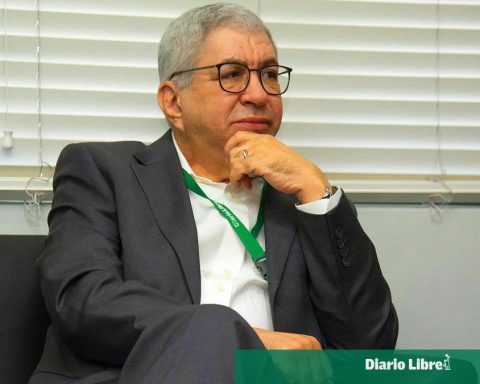Colombia appears to the foreign investor in this second semester of the current year as a country with opportunities, but also with challenges in areas such as the climate transition.
(Read: Petro’s warning to Ecopetrol about its clean energy plan)
This was stated this Tuesday by the BlackRock Investment Institute, the research arm of the asset manager, when presenting its forecasts for the second half of the current year entitled ‘Back to a volatile future’.
“Colombia presents investors with both opportunities and challenges. Among the first is the positioning that Colombia can achieve as a secure source of supply for the US market, the main destination for Colombian exports. Particularly in industries linked to manufacturing or food,” Alex Christensen, director of investment strategy for Latin America at BlackRock, told Portfolio.
Christensen was also emphatic in specifying that in the challenges linked to the energy transition, This is the path that industries such as oil and coal mining should follow, “although the companies that lead the emissions adjustment process can offer interesting investment potential in the transition process that will last for at least a couple of decades.”
Regarding political change in the country, the BlackRock executive pointed out that political changes, in general, are part of the risks inherent in investments.
However, he recalled that in recent times, there have been records of political changes in the region that initially caused concern, but later turned out to be more moderate and gradual.
“There do not seem to be conditions observed today to consider that the recent political change in Colombia does not take a similar path,” Christensen said.
a volatile future
The report from the research arm of the asset manager contemplates a second-half scenario where three factors will be decisive.
The first of these, called ‘preparing for volatility’, estimates that the unstable market behavior will continue and the volatility of the 1970s could return.
The second point, ‘living with inflation’, is linked to the inflationary spiral that the world is facing and where central banks have a vital role in adjusting their interest rates in a balanced way.
“Central bankers have a very difficult job. On the one hand, trying to curb inflation levels but at the same time not hitting the economy too hard,” Christensen said.
(Also: Oil Prices Fall Below $100 on Recession Fears.)
The third scenario contemplated from the signing is related to the energy transition and the direction that the economies and investors about it. “Investors can gain exposure to the transition not only by investing in companies considered ‘green’ but also in those companies linked to hydrocarbons with credible transition plans,” the report cited.
ROBERTO CASAS LUGO
















